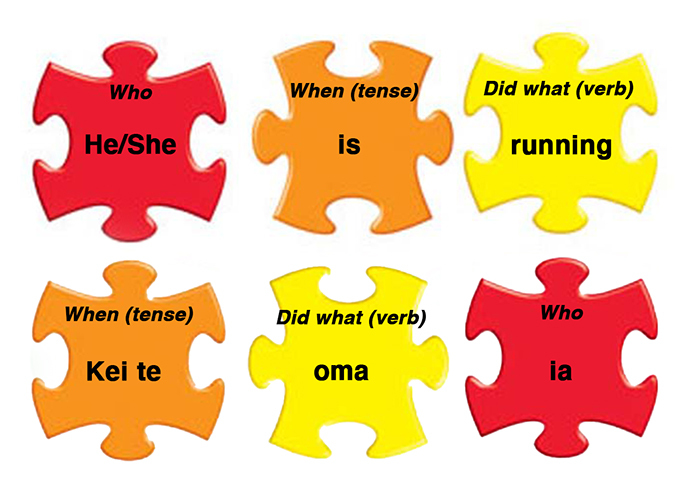Kōrero Māori – Give te reo a go
Mary Hinsen
28 March 2021, 4:30 PM
 Join us in our Māori language journey through our Monday te reo Māori series.
Join us in our Māori language journey through our Monday te reo Māori series.Tēnā koutou - hello everyone.
How are you going in your te reo journey? It’s great to hear people giving te reo a go with me.
For the past two weeks, we’ve given ourselves a bit of a head start in our journey with te reo by looking at words and phrases we might already know..
This week, now that we’ve got a few words mastered, I thought we’d take a look at how to form simple sentences - and then how to turn these sentences into questions.
If we think about our basic sentences in English, there is an order that we use - it’s a bit like a simple jigsaw:
Whoever is doing the action + tense (indicating when it happened) + verb (what they’re doing).
Who + tense + verb
He is going.
She is singing.
In te reo, it’s the same jigsaw, just that the pieces go together in a slightly different order.
Tense + verb + who
Kei te haere ia.
He/she is going.
‘Kei te …’ is one way to show it’s happening now.
‘haere’ is a verb meaning to go
‘ia’ is a pronoun meaning he, she, him, her or it.

Getting word order correct in a sentence is simple - it’s just a jigsaw.
You can substitute other words into this simple sentence, and you’re off and running!
Let’s use the word oma, meaning run, and turn this same sentence into a question - it’s easy.
Kei te oma ia. He/she is running.
To turn it into a question, just put a question mark on the end when it’s written, and ask it in a question style of voice if you’re speaking.
Kei te oma ia? Is he/she running?
We’ll do some more simple sentence practice next week. In the meantime, Kia pai te rā. Have a great day.
Check out te wiki o te reo Māori here


